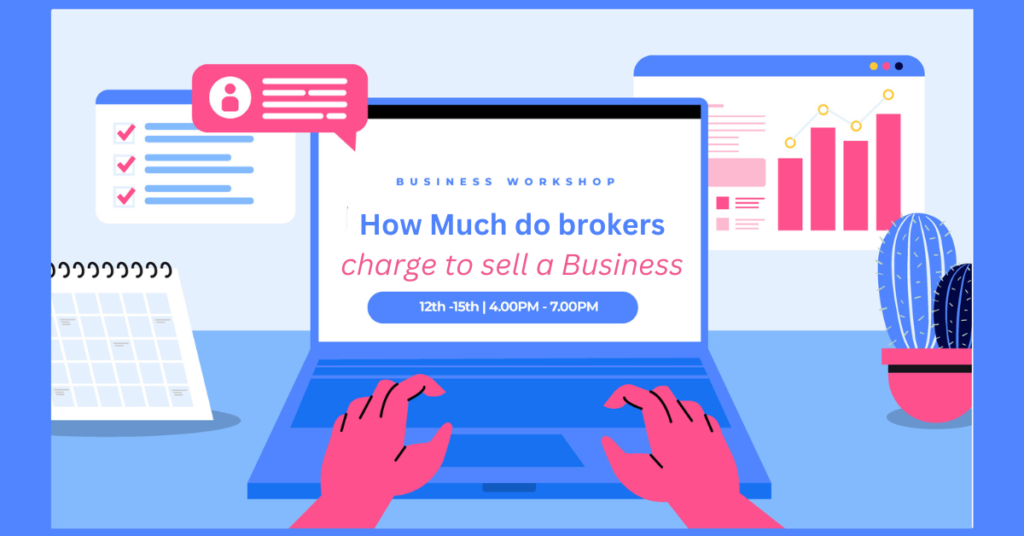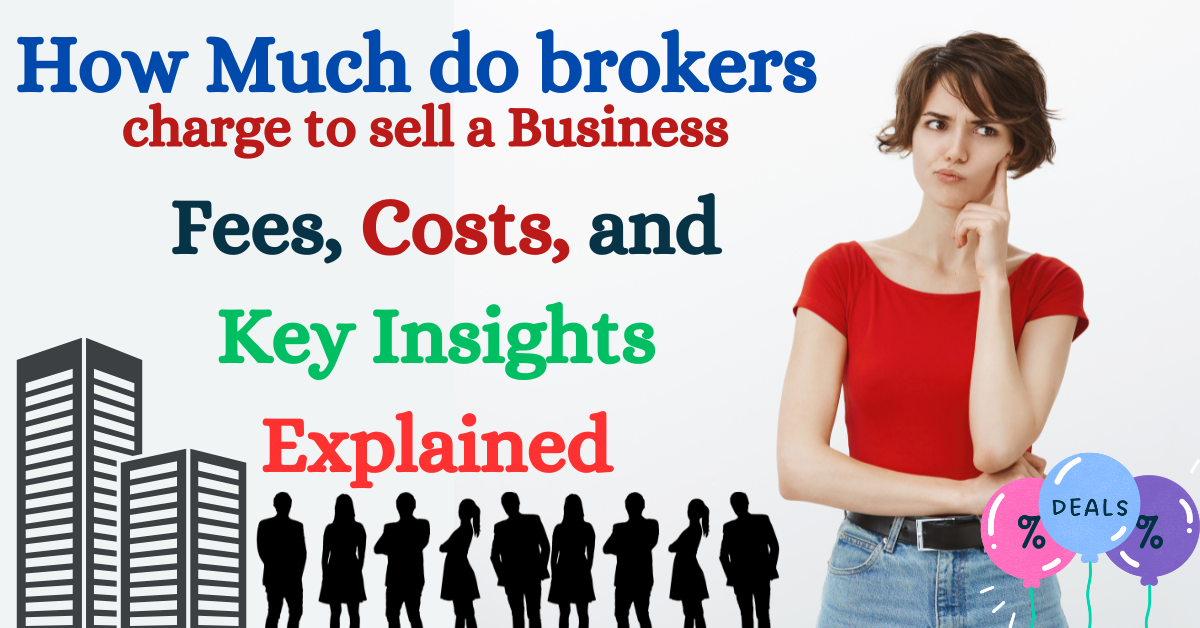When selling a business, one of the first questions many owners ask is: How much do brokers charge to sell a business? It’s a critical question that can impact the financial outcome of your sale. Understanding broker fees and costs is essential for preparing yourself and ensuring there are no unexpected surprises along the way. In this blog post, we’ll provide a comprehensive breakdown of broker fees, factors that affect pricing, and key insights that will help you make an informed decision.
What is a Business Broker and What Do They Do?
Before we dive into the specifics of fees, let’s first define what a business broker is and what they do.
A business broker is a professional intermediary who helps facilitate the sale of a business. They handle everything from preparing your business for sale to finding potential buyers, negotiating the deal, and ensuring the sale closes successfully. Their primary goal is to make the process as seamless as possible and to help you get the best price for your business.
How Much Do Brokers Charge to Sell a Business?

Broker fees can vary based on a variety of factors, including the size of your business, the complexity of the deal, and the broker’s experience. Below, we break down the most common ways business brokers charge for their services:
1. Commission-Based Fees
The most common fee structure for business brokers is a commission-based model. This means the broker earns a percentage of the final sale price of your business. The commission rate typically depends on the size of your business and the complexity of the transaction:
- Small businesses (under $1 million): Brokers typically charge around 10% of the sale price.
- Medium-sized businesses ($1 million to $5 million): The commission rate generally falls between 7% and 8%.
- Larger businesses (over $5 million): The commission rate may drop to around 5%.
While these percentages may seem high, remember that brokers handle all the heavy lifting involved in selling your business, from preparing the listing to negotiating the best deal.
2. Flat Fees
In some cases, brokers charge a flat fee instead of a commission. This fee is a fixed amount agreed upon upfront, regardless of the sale price. This structure is more common for smaller businesses. Flat fees can range from a few thousand dollars to tens of thousands, depending on the services provided.
3. Retainers
Some brokers may require a retainer—an upfront fee paid to cover the initial preparation and marketing work. This amount varies, but it could range from a few thousand dollars to tens of thousands, depending on the size and complexity of the sale.
4. Success Fees
A success fee is an additional charge that may apply once the sale is successfully completed. This fee could be a flat amount or an extra percentage on top of the broker’s commission. It’s designed to reward the broker for closing the deal.
What Factors Affect Broker Fees?
Several factors influence the fees that business brokers charge. These include:
1. Size of the Business
Typically, larger businesses have lower percentage fees. Since the sale price is higher, brokers can still earn a substantial commission with a lower percentage rate. Smaller businesses, on the other hand, usually have higher percentage fees.
2. Industry Specialization
Some industries require specialized knowledge, which can affect the broker’s fees. For example, if your business is in a niche market (e.g., technology, healthcare, or manufacturing), brokers with expertise in that sector may charge higher fees due to the additional skills and knowledge required to successfully sell your business.
3. Location
The broker’s location can also affect the fees they charge. Brokers in high-demand, metropolitan areas tend to charge more than those working in smaller markets or rural areas.
4. Business Complexity
If your business has complex financials, multiple locations, or unique assets, the broker may charge higher fees due to the added effort involved in managing such a sale.
5. Broker’s Experience and Reputation
Highly experienced brokers with a strong track record often charge higher fees. Their expertise and ability to close deals quickly and for the best price may justify the extra cost.
Other Costs to Consider When Selling Your Business
While broker fees are the most significant cost, there are other expenses you should anticipate when selling your business:
1. Business Valuation
Before you can sell your business, you may need to get a professional valuation to determine its worth. This could cost anywhere from $2,000 to $10,000, depending on the complexity and size of your business.
2. Legal Fees
Selling a business involves legal contracts, negotiations, and due diligence. You will need a lawyer to handle these aspects, and legal fees can range from a few thousand dollars to tens of thousands, depending on the complexity of the deal.
3. Tax Implications
Selling your business may have tax consequences. Working with a tax advisor is essential to understand how the sale will affect your taxes and to ensure that you structure the deal in the most tax-efficient way.
4. Marketing and Advertising
While many brokers include marketing in their fees, some may charge extra for advertising and promotional efforts to attract buyers. Be sure to clarify with your broker what marketing services are included and what might cost extra.
How to Choose the Right Business Broker
Choosing the right broker is one of the most important decisions you’ll make when selling your business. Here are some key tips to help you choose the right one:
- Experience: Look for brokers who have experience in selling businesses similar to yours in terms of size and industry.
- Reputation: Check their reputation by reading reviews and testimonials. Ask for references and speak to previous clients.
- Transparency: Make sure the broker is clear about their fees and services. Avoid brokers who are vague about costs or hesitant to share this information upfront.
- Personalized Service: Choose a broker who is willing to tailor their approach to your specific business and needs.
- Expertise: Ensure the broker has the expertise and resources needed to guide you through the complex process of selling a business.
Is Hiring a Broker Worth It?
While broker fees can seem steep, the value a skilled broker brings to the table is often worth the cost. A good broker will help you get the best price for your business, streamline the process, and handle the details so you can focus on other things. Their expertise can make all the difference in ensuring a successful sale.
Understanding how much brokers charge to sell a business and the factors that influence their fees will help you make an informed decision. Ultimately, hiring the right broker can mean the difference between a successful sale and a missed opportunity.

